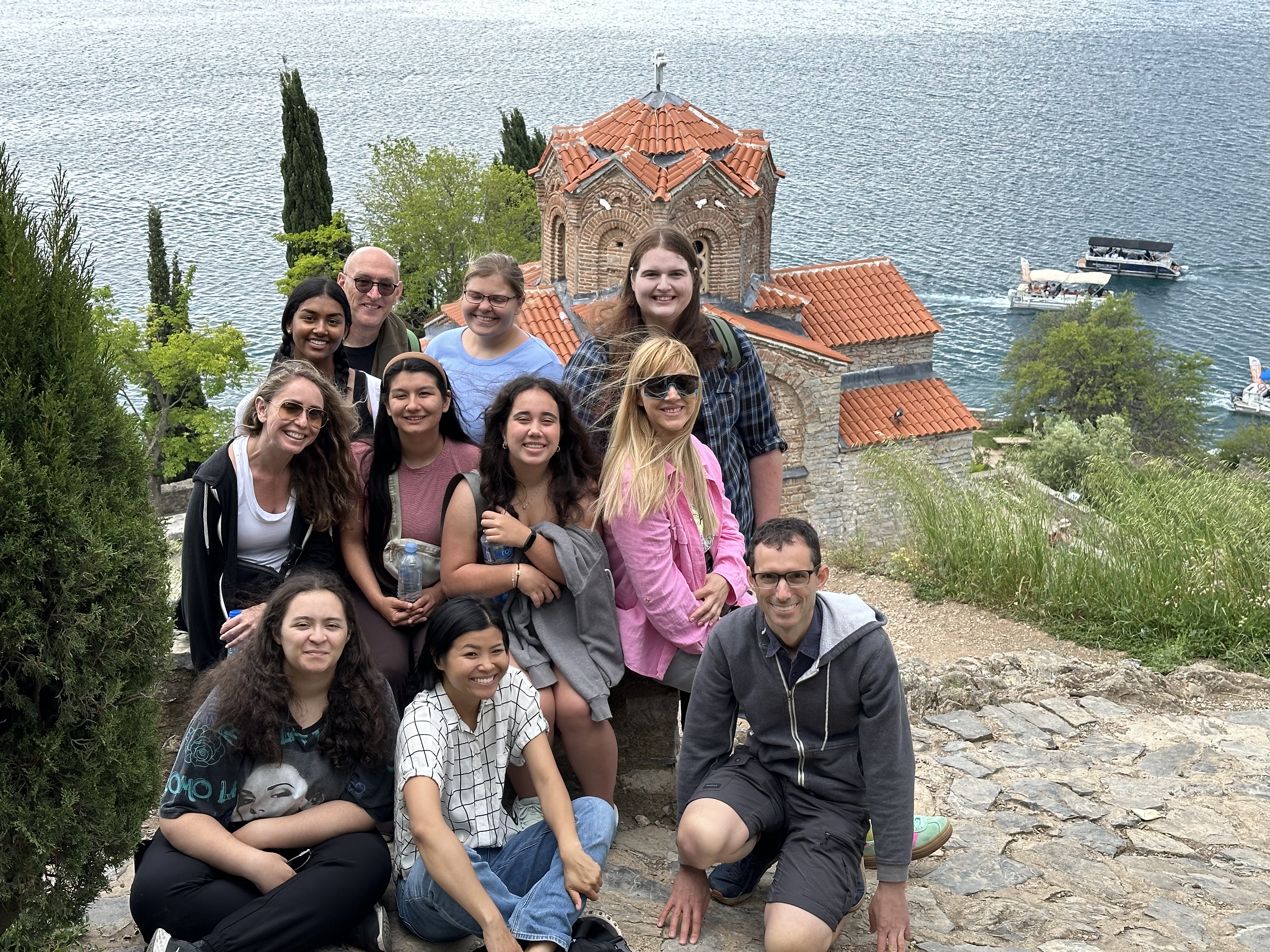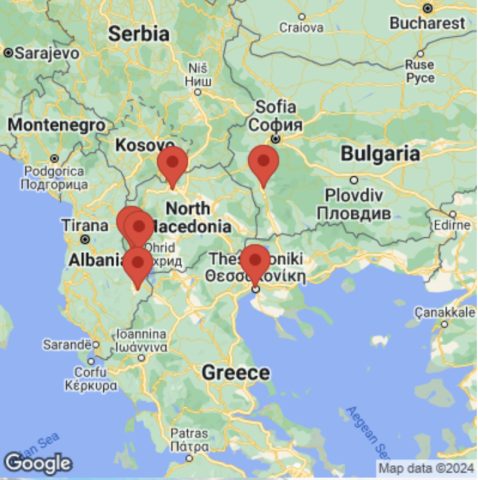
Cities, Nationalism, and Borders in Macedonia
Study in the Southern Balkans
Visit three cities in the Southern Balkans: Skopje, Ohrid and Thessaloniki. Analyze conflicting interpretations of the past, and why they matter, at museums, monuments & other historical sites. Experience and observe cultural ties that connect the southern Balkans. Discover the treasures of the tomb of Phillip II of Macedon, father of Alexander the Great. Meet scholars, activists and creative artists from the region.
With a shared Ottoman past, enduring tensions over identity politics, and common economic and security concerns as Europe faces new challenges, Skopje and Thessaloniki provide a unique opportunity to study nationalism and its effects on the physical landscape, including borders and the built environment. This course offers a journey across a region where politics has repeatedly redrawn maps and provoked conflict, yet tolerance and diversity have endured.

Course Information
POS/SGS 394: Cities, Nationalism, and Borders in Macedonia (3 credits)
Program dates
Summer 2027
Program fee
This year's program fee is TBD. The fee includes: tuition for 3 ASU credits, all housing, local transportation, course-related field trips, some group meals, and health insurance. Not included: trans-Atlantic airfare, most meals, passport, books and personal expenses.
Eligibility
This program is open to all students with a minimum GPA of 2.0 and who are in good standing with the university.
Application Requirements
When the application becomes available, please click the button below to get started. This will generate an online application with the requirements listed below. Note: Non-ASU students should consult these instructions before applying.
- Electronically sign our standard signature documents:
- Submit emergency contact details
Meet the Instructors
Accommodations
Students will be housed in graduate dorms in Skopje, a purpose built educational resort in Ohrid, and hotels and youth hostels in other cities. Chartered buses will take us between cities but walking will be the usual mode of transportation within each city.
Skopje
The capital of the Republic of Macedonia, situated on the banks of the Vardar river, is home to the vibrant core of an important Ottoman city which includes a fortress, impressive mosques and a 16th century Turkish bath. Around this Ottoman core stretches a city built from the 1960s as an experiment in internationalism and modernism which has recently undergone a nationalist, neoclassical face lift. The city serves as the center of government, entertainment, business, and culture for this republic that was once part of Yugoslavia.
Ohrid
Situated on the shores of the vast Lake Ohrid, which is a UNESCO World Heritage site, this city serves as a summer retreat for many in Macedonia. With roots that stretch as far as the 4th century BC, Ohrid is famed for its many churches, the fortress of Tsar Samouil, and its summer festival that draws visitors from all over the country and beyond.
Thessaloniki
Greece’s co-capital city, the capital city of Greek Macedonia, and one of the first truly cosmopolitan cities, Thessaloniki is an important port city for the Balkans. The city has been part of the modern state of Greece since it was liberated from the Ottomans in 1912. Its history is showcased in the Archaeological Museum of Thessaloniki which contains important Macedonian artifacts. Thessaloniki had a large Jewish population before the Nazi occupation during World War II. Mount Olympus, famed home of the gods of ancient Greece is clearly visible across the bay.
